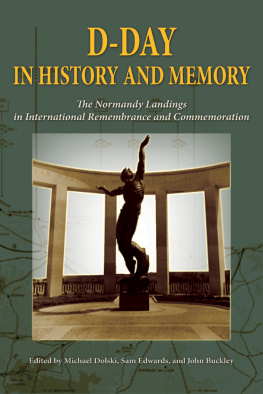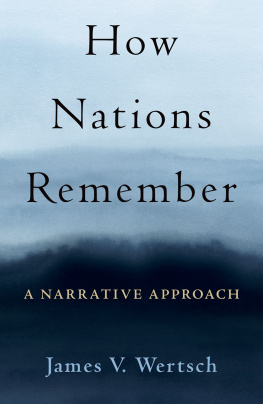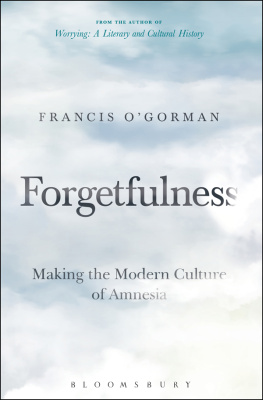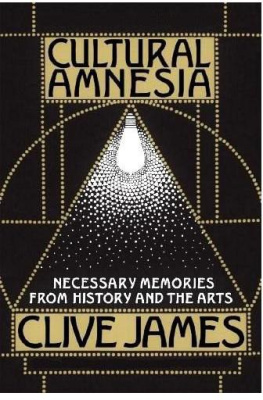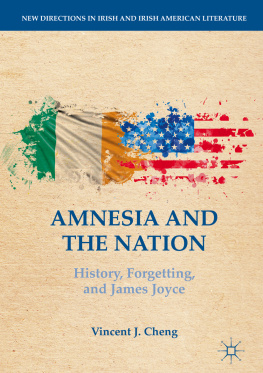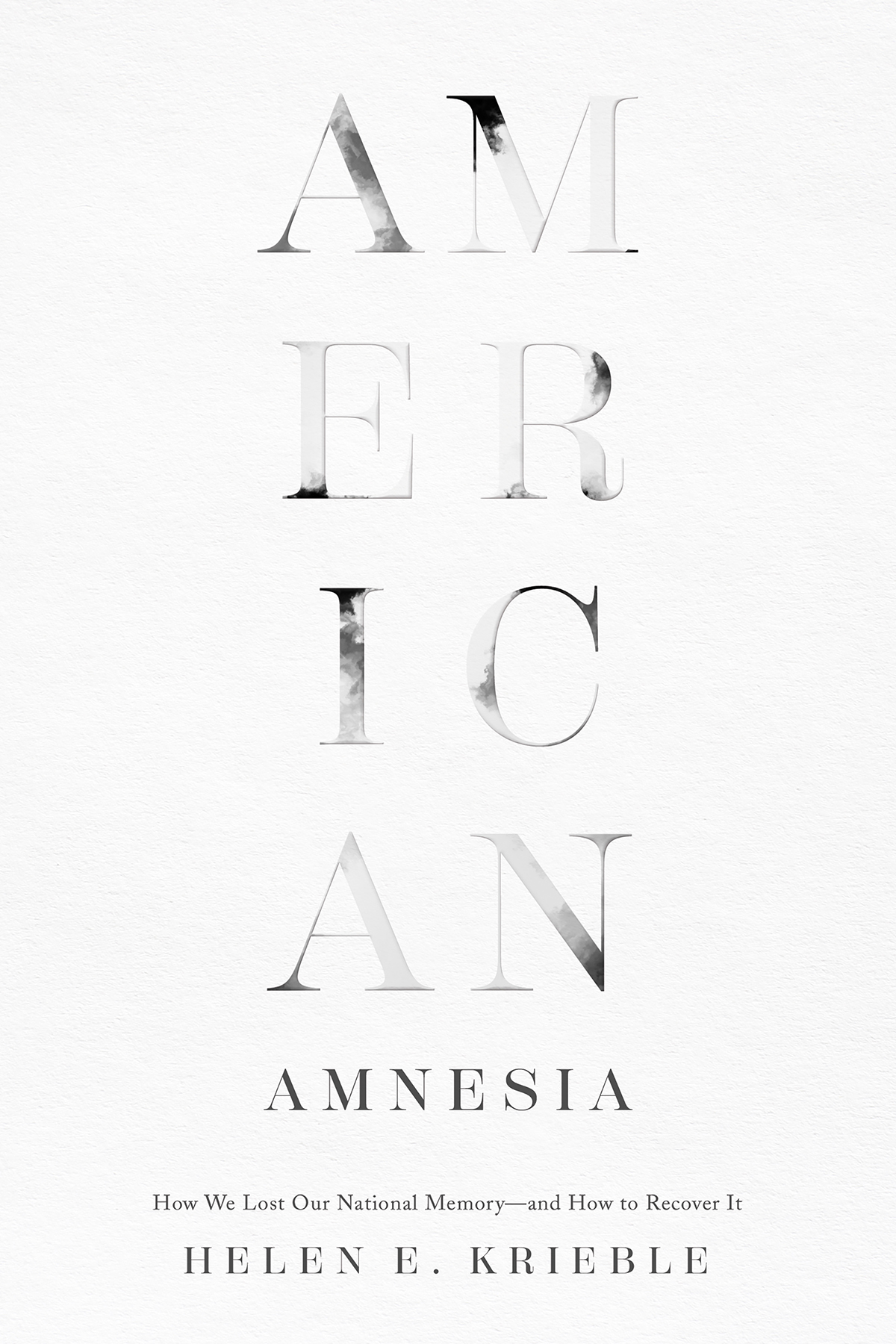Contents
Guide
Pagebreaks of the Print Version
AMERICAN
AMNESIA
How We Lost Our National Memoryand How to Recover It
HELEN E. KRIEBLE

New York London
2022 by Vernon K. Krieble Foundation
All rights reserved. No part of this publication may be reproduced, stored in a retrieval system, or transmitted, in any form or by any means, electronic, mechanical, photocopying, recording, or otherwise, without the prior written permission of Encounter Books, 900 Broadway, Suite 601, New York, New York, 10003.
First American edition published in 2022 by Encounter Books, an activity of Encounter for Culture and Education, Inc., a nonprofit, tax-exempt corporation. Encounter Books website address: www.encounterbooks.com
Manufactured in the United States and printed on acid-free paper. The paper used in this publication meets the minimum requirements of ANSI/NISO Z39.48-1992 (R 1997) (Permanence of Paper).
FIRST AMERICAN EDITION
LIBRARY OF CONGRESS CATALOGING-IN-PUBLICATION DATA
Names: Krieble, Helen E., 19432021, author.
Title: American amnesia: how we lost our national memoryand how to recover it / by Helen E. Krieble.
Description: New York: Encounter Books, 2022.
Includes bibliographical references and index.
Identifiers: LCCN 2022007487 (print) | LCCN 2022007488 (ebook)
ISBN 9781641772808 (hardcover) | ISBN 9781641772815 (ebook)
Subjects: LCSH: National characteristics, American.
United StatesPolitics and governmentPhilosophy.
Founding Fathers of the United States.
CitizenshipUnited States. | LibertyUnited States.
ConservatismUnited States. | Collective memoryUnited States.
Classification: LCC E169.1 .K6886 2022 (print) | LCC E169.1 (ebook)
DDC 973dc23/eng/20220328
LC record available at https://lccn.loc.gov/2022007487
LC ebook record available at https://lccn.loc.gov/2022007488
1 2 3 4 5 6 7 8 9 20 22
CONTENTS
FOREWORD
Edwin J. Feulner
Helen Krieble was a force of nature. When she saw a problem, she examined it and decided if it was worth her attention. If it was, she committed herself to doing everything within her power to solve it.
Her parents, Bob and Nancy Krieble, of Old Lyme, CT, taught Helen early that just because something had challenged the ingenuity of thoughtful people for many years, it might be within her grasp to find the solution.
Her grandfather, Dr. Vernon K. Krieble, was a professor of chemistry and chairman of the chemistry department at Trinity College, in Hartford, CT. Her father, Dr. Robert Krieble, also earned his degrees in chemistry and was a role model problem-solver.
Bob once told me how he and his father had made their major discovery: Ed, it was a simple idea: a threaded nut and bolt could be attached and removed whenever you wanted them to be. But, what if, when the nut and bolt are attached, you want them to stay that way? Then, what if while attached, they shake and vibrate and come loose? Maybe instead of mechanically trying to tighten them further, or welding them together, or trying to find another mechanical solution, instead you tighten them and then add a drop of a bonding chemical? That was the basic idea that led my father and me to conduct hundreds of experimentsthe trial-and-error methodto find the right chemical compound that would hold the nut and bolt together permanently. That was the basic idea of what became Loctite.
Bob served as a trustee of The Heritage Foundation for more than twenty years while I served as its president. He would fly himself to Heritage board meetings at our Washington headquarters. Nothing unusual about that, I thought, until he showed me a picture of his hand-built, small wooden airplane; a machine, that in my untutored manner, would have done the Wright Brothers proud! Thank goodness he had Loctite to hold his planes parts together, I thought, as I politely declined his offer of a ride with him in it.
I recount these Krieble family stories to illustrate the stock from which Helen Krieble came. In American Amnesia, Helen asks, who are we? Is America really an exceptional place? Her book both sets forth those principles and answers that fundamental question. Yes, she is a traditionalistshe relies on the wisdom of the Founding Fathers and their insights into the wisdom of the people.
She reminds us, as President James Madison wrote, If Men were angels, no government would be necessary. Alas, we are not angels, and government is necessary. So, what is the best government we can design? Helen argues that the Founders have already examined that question and constructed the ideal form of government.
It is a government where the people rule. That is, sovereignty belongs to the people. We are not vassals of a ruling king, or of mandarin elitists operating from a Washington bureaucracy.
As she recounts in American Amnesia, the founding principles of America were extraordinarily strong in her native Connecticut. Therefore, Connecticut should be the showcase for Americas founding principles; and if it isnt, something should be done to bring it back to that leadership role. Therefore, she asks herself, what can I do to make that happen? She decides to try some of her ideas in her home state. She creates a foundation in the name of her late grandfather, the Vernon K. Krieble Foundation, and she finds ways to recognize the wisdom of ordinary Americans who are problem-solvers. She encourages them, and she rewards them for their individual ideas to deal with real American challenges by giving out Unsung Heroes Awards. Maybe its encouraging civic literacy in her adopted Colorado, or recognizing the unique characteristics of individual state think tanks around the country.
When Helen Krieble saw a problem, no matter how large, she would ask: How can we solve this? Yes, this is a characteristic that she shared with many other Americans because, as she admits, Americans have an insatiable need to fix every single problem, even though that too often involves governmental solutions. Watching from the sidelines as some of Washingtons best and brightest people considered an issue, she would ask why a simple alternative way to look at the problem hadnt been proposed. Sometimes the political insiders would reply that the politicians didnt want to solve it, because the unsolved problem could be a political advantage to them. Other times, they might actually admit that the usual solution of throwing more government money at it would not really solve the problem, but would grow the governmental bureaucracies and lessen the options for real solutions available in the future. Very infrequently, these same self-proclaimed experts would admit they hadnt really thought outside the box to look for a totally new way to confront an issue. Helen would explain to them that a new way would start with going back to the Founders first principles.
Helen would examine an issue and, often enough, find the missing link that could provide a new way of looking at a vexing policy issue. Hence, her Red Card Solution to the immigration challenge that has perplexed politicians and policy geeks for decades. In a nutshell, her solution is to use private-sector capabilities to match job opportunities with available talent, avoid the governmental bureaucratic bottlenecks, and bring the demand for specific talented labor into balance with the demand for it. Yes, theres more to it than that, as she explains in Chapter Four.




